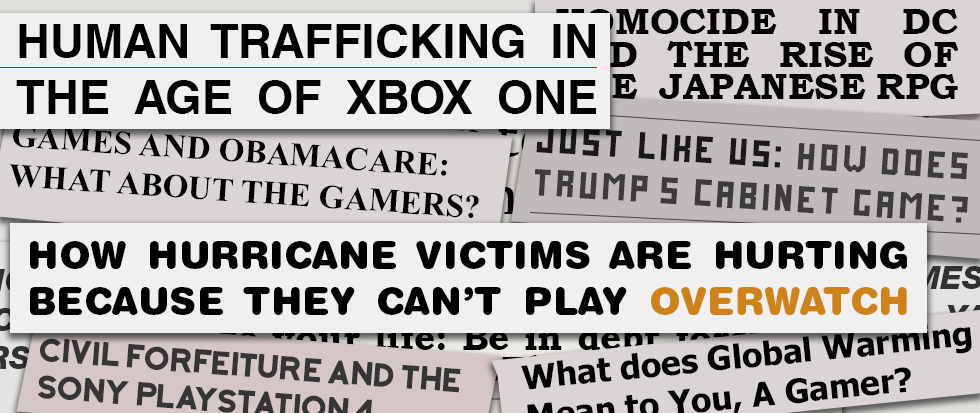
The Game Take is the Worst Take
Writing is hard, almost has hard as finding the work. Writing about something you’re passionate about and finding someone to pay you for it is even harder. Do it long enough and you start to find those passions expand. You might even feel some sort of social responsibility. But for those of us that write about video games, the “video game” angle on anything is the worst angle.
The video games can be a powerful tool. They can connect people near and far, transport them to distant worlds, speak to them on a profoundly emotion emotional level, or allow them to express themselves in powerful ways. Video games can be a force for good, equipped as they are with abilities that are not found on the stage, in books, or on film.
Using games as a starting point to exploring different, difficult, or underrepresented ideas and topics have produced some of my favorite pieces. While so much video game writing ends up being snazzy reproductions of press releases its easy to forget that we’re not in marketing. Some writers do that brilliantly either through deep dives into games themselves or by using those games to tunnel into other topics.
The problem occurs when people never make it past at starting point. “How hurricane victims are hurting because they can’t play Overwatch” might be a straw man headline but ignores the very real hardships. Instead, it focuses in on a minor plot point in order to shoehorn the article into a website or magazine ostensibly about video games.
Framing their, or any other, struggle solely through the game isn’t just not good or interesting, its frankly insulting to the reader. Can you empathize with a person beyond their ability or inability to play a video game? Can you pay attention long enough to not need the warm, soft safety blanket of a topic familiar to you? It’s one thing to use a familiar pastime to humanize people who may be distant from you, it’s another to only focus on that past time without engaging with those “others” as fundamentally people and fundamentally worth caring about.
“Prestige” game writing has always operated under a kind of broken promise. We want to dive deeper into topics, challenge big ideas and current events, but there’s really very little prestigious about what we’re doing, or pretending to do. When we say prestige, we mean good. We just want to write good articles. Instead, we, Twitter, and our echo chamber have convinced ourselves that “How Are Gamers Affected by Obamacare” is a worthy headline.
The power of video games shines brightest when games are a conduit, not an end point. Games, and not just video ones, facilitate amazing things for humans. Dungeons and Dragons brings an uncountable number of people around tables all over the world. But so have dozens of games throughout the history of games and tables. Even so, the most interesting part of bringing people around a table to play a game are the human interactions that the game simply facilitates. Never leaving the game is to never engage with the humans.
It’s hard to watch sites pat themselves on the back super hard for only the tip of the iceberg. It’s even harder when they don’t realize that. Worse still, if we keep patting them and each other on the back over the worst possible take then we may not get to the point where we do the real work. Instead, we might forever languish with articles like “What does Global Warming Mean to You, A Gamer” or “Human Trafficking in the Age of Xbox One.”
We can do better.





